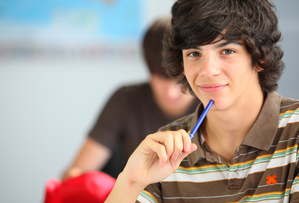 Many adults and children suffer from ADHD. While a combination of psychotherapy and medication may be helpful, there are also some more natural “tricks” that can help ward off hyperactivity and increase focusing. B-Complex vitamins (specifically B1, B3, & B6) are shown to help improve impulsive behavior. These are usually found in foods such as fish, meat, nuts, sunflower seeds, and leafy greens such as spinach Eating more foods with calcium and magnesium can help to calm anxiety, fidgeting, and restlessness. Good sources of calcium and magnesium are nuts, seeds, sardines, and salmon. Omega-3s help aid in focusing, and improving memory and mood. Many vitamin stores now sell an Omega-3 without the fishy taste (my favorite is Sprouts). Eating fresh water fish such as salmon, halibut, and more pasture-raised meats can help increase your intake of Omega-3s. Sometimes our diet and eating habits play a big part in our physical and mental health.
0 Comments
 19 million adults in the United States suffer from an anxiety disorder. That means that everyone in the United States has a 28% chance that they will develop an anxiety disorder at some point in their life. Anxiety can lead to physical ailments such as hypertension, diabetes, and arthritis. And what’s even more alarming is the average age that someone develops an anxiety disorder is 11 years old! So what can you do about an anxiety disorder? Anxiety can be treated with psychotherapy, medications, or alternative methods such as massage therapy or acupuncture. A trained professional can help you make decisions about appropriate treatment. Often people that suffer from anxiety worry that this will affect their ability to be successful. Many public figures have struggled through anxiety and continued to lead meaningful positive lives. Whoopi Goldberg, David Beckham, and Johnny Depp are all people that have publically shared their struggles with anxiety and how they have managed it. Don’t suffer in silence. Reach out for help for you or a loved one to get through an anxiety disorder. Need help? We're here!  Like any other field, buzz words come and go through the world of psychotherapy and psychology. One word that has been trending lately is “attachment”. And not just attachment, but “reactive attachment”. Like the announcement of the ADHD era, parents and caregivers may be concerned and wondering what reactive attachment disorder is and does it effect me or my child? Reactive attachment disorder (RAD) refers to individuals that have aversions to touch and physical affection, control issues, anger problems, difficulty showing genuine care and affection, and failure to show guilt or remorse. Specifically in children, detached or unresponsive behavior is common. Children and toddlers also are less likely to reach to be picked up, reject efforts to be calmed or soothed, and attempt to avoid eye contact. There are two types of RAD: inhibited and disinhibited. Inhibited type refers more to indiviudals that experience detached or unresponsive symptoms, while disinhibited individuals typically have difficulty selecting the appropriate people or caregivers to attach to. Now I know what it is, but what can I do about it? There are many ways to assist adults and children with working through Reactive Attachment Disorder in order to have more healthy and fulfilling relationships. For childen, unconditonal love is key to helping them learn to re attach in a healthy way. Setting positive limits and boundaries, maintaining predictable schedules and routines, and talking and playing with them regularly also can be helpful. For adults, changing faulty thinking patterns that have led to disengaging from others can be helpful. Working on gaining a positive sense of self-esteem and self acceptance may help as well. Professional help is available for children and adults that are struggling with or are concerned about RAD. For your reading pleasure A great book for promoting and repairing attachment with children is I Love You Rituals by Becky A. Bailey, PhD. It gives different activities for parents and children that encourage bonding and showing unconditional love. Sources www.instituteforattachment.org www.goodtherapy.org www.reactiveattachmentdisorderlife.blogspot.com Want help with Reactive Attachment? Click here! |
Archives
January 2024
Categories
All
|
|
|
Share This Page
Greater Houston Counseling Services
"Making your day a little easier" Phone: (832) 717-7166 |
Four locations across the Houston area |

 RSS Feed
RSS Feed